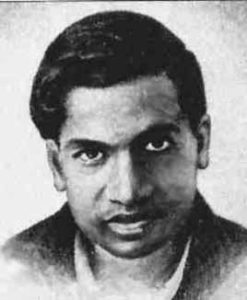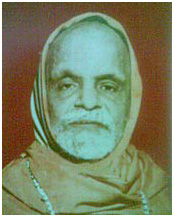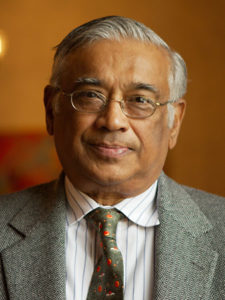Category Archives: Maths Brain
Ramanujan – The Man Who Knew Infinity

His work has had a fundamental role in the development of 20th century mathematics and his final writings are serving as an inspiration for the mathematics of this century
On a height he stood that looked towards greater heights.
Our early approaches to the Infinite
Are sunrise splendours on a marvellous verge
While lingers yet unseen the glorious sun.
What now we see is a shadow of what must come.
The story of Srinivasa Ramanujan is a 20th century “rags to mathematical riches” story. In his short life, Ramanujan had a wealth of ideas that have transformed and reshaped 20th century mathematics. These ideas continue to shape mathematics of the 21st century. This article seeks to give a panoramic view of his essential contributions.
Shankaracharya Swami & Vedic Maths – Worldwide
 Swami Bharati Krishna Tirtha
Swami Bharati Krishna Tirtha
Jagadguru Shankaracharya Swami Bharati Krishna Tirtha (hereafter “Bharati Krishna”) lived from 1884 to 1960. He is said to have reconstructed the ancient system of Vedic Mathematics from certain Sanskrit texts which other scholars had dismissed as nonsense. He tells us that the Vedic system which he rediscovered is based on sixteen Sutras which cover all branches of mathematics, pure and applied. The methods he showed and the simple Sutras on which it is based are extraordinarily simple and easy to apply, and the whole system possesses a unity not found in conventional mathematical methods. It can hardly be doubted that Bharati Krishna’s remarkable discoveries in mathematics will in time change the teaching of and approach to mathematics worldwide: but this was not his main interest in life. His life was devoted to helping those individuals he could and also helping to bring about world peace and spiritual renewal.
Man of Probability Theory
 Sr Srinivasa Varadhan
Sr Srinivasa Varadhan
S.R. Srinivasa Varadhan, (born Jan. 2, 1940, Madras [now Chennai], India) Indian mathematician awarded the 2007 Abel Prize by the Norwegian Academy of Sciences and Letters “for his fundamental contributions to probability theory and in particular for creating a unified theory of large deviations.”
Varadhan received a bachelor’s degree (1959) and master’s degree (1960) from the University of Madras before earning a doctorate (1963) from the Indian Statistical Institute in Calcutta. He spent the next three years as a postdoctoral fellow at the Courant Institute of Mathematical Sciences, New York University, in New York City. He stayed on at Courant after his fellowship, rising through the academic ranks to become a full professor in 1972.
Probability theory is excellent at describing the most likely events a system will produce, such as the number of heads in a long string of coin tosses.













